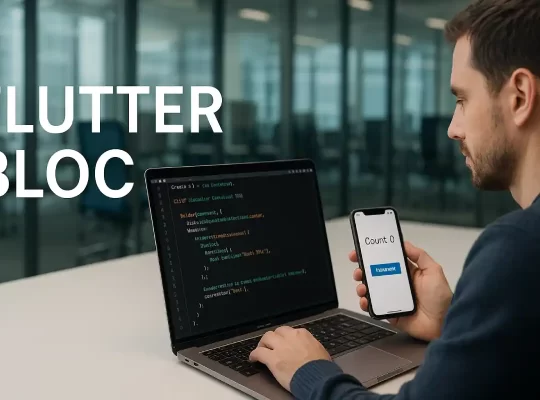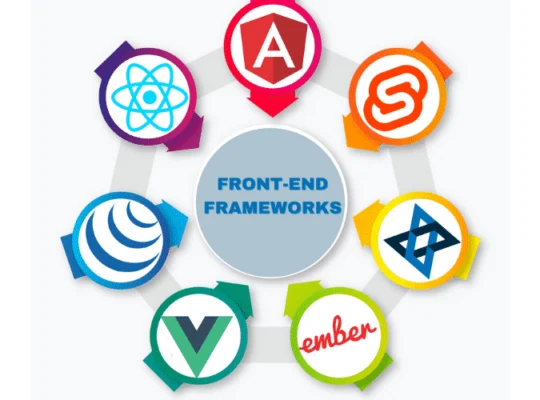📱 Flutter Margin vs Padding – The Simple Guide
If you’re just starting with Flutter, one of the most confusing layout concepts is the difference between margin and padding. Don’t worry — by the end of this article, you’ll master both, with clear examples and tips.
✅ What’s the Difference?
- Padding: Space inside a widget, between its content and its border.
- Margin: Space outside a widget, between the widget and other widgets.
You can think of it like this:
- 📦 Padding = cushion inside the box.
- 📐 Margin = space around the box.
🔷 Padding Example
Padding(
padding: EdgeInsets.all(16.0),
child: Container(
color: Colors.blue,
child: Text("Padded Text"),
),
)
This gives 16 pixels of space inside the container, so the text doesn’t touch the edges.
🔶 Margin Example
Container(
margin: EdgeInsets.all(16.0),
color: Colors.green,
child: Text("Box with margin"),
)
Here, the entire green box is pushed 16 pixels away from other widgets around it.
✨ Using Both Margin and Padding
Container(
margin: EdgeInsets.all(12),
padding: EdgeInsets.all(20),
color: Colors.orange,
child: Text("Both margin and padding"),
)
– Margin adds space outside the orange box.
– Padding adds space inside, around the text.
📏 EdgeInsets Cheat Sheet
EdgeInsets.all(10)– Same on all sidesEdgeInsets.symmetric(horizontal: 12, vertical: 8)– Horizontal & vertical onlyEdgeInsets.only(top: 10, left: 20)– Custom sides
💡 Quick Tips to Remember
- Use Padding widget to add space inside.
- Use margin inside Container to add space outside.
- Padding = pushes content in | Margin = pushes widget out
🧪 Flutter Example: Full Code
import 'package:flutter/material.dart';
void main() {
runApp(MyApp());
}
class MyApp extends StatelessWidget {
@override
Widget build(BuildContext context) {
return MaterialApp(
title: 'Flutter Margin vs Padding',
home: Scaffold(
appBar: AppBar(
title: Text('Margin vs Padding Example'),
),
body: SingleChildScrollView(
padding: EdgeInsets.all(16),
child: Column(
crossAxisAlignment: CrossAxisAlignment.stretch,
children: [
// Padding Example
Text(
'🟦 Padding Example',
style: TextStyle(fontSize: 18, fontWeight: FontWeight.bold),
),
Padding(
padding: EdgeInsets.all(20),
child: Container(
color: Colors.blue[200],
child: Text(
'This text is padded inside the container',
style: TextStyle(fontSize: 16),
),
),
),
SizedBox(height: 30),
// Margin Example
Text(
'🟩 Margin Example',
style: TextStyle(fontSize: 18, fontWeight: FontWeight.bold),
),
Container(
margin: EdgeInsets.all(20),
color: Colors.green[300],
child: Padding(
padding: EdgeInsets.all(8),
child: Text(
'This container has margin outside',
style: TextStyle(fontSize: 16),
),
),
),
SizedBox(height: 30),
// Margin + Padding Example
Text(
'🟧 Margin + Padding Example',
style: TextStyle(fontSize: 18, fontWeight: FontWeight.bold),
),
Container(
margin: EdgeInsets.all(16),
padding: EdgeInsets.all(20),
color: Colors.orange[300],
child: Text(
'Both margin and padding applied',
style: TextStyle(fontSize: 16),
),
),
],
),
),
),
);
}
}
📌 Key Takeaways
- ✅ Padding = space inside the box
- ✅ Margin = space outside the box
- Use
Padding()widget for inner space - Use
Container(margin: ...)for outer space
🎯 Final Note
Once you visualize margin as pushing the widget away and padding as pulling the content in, you’ll never get confused again! Run the code above and play around by changing the values — that’s the best way to learn.





